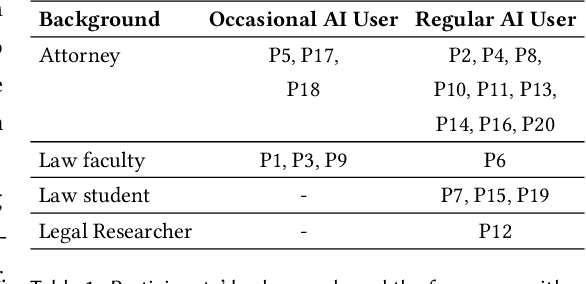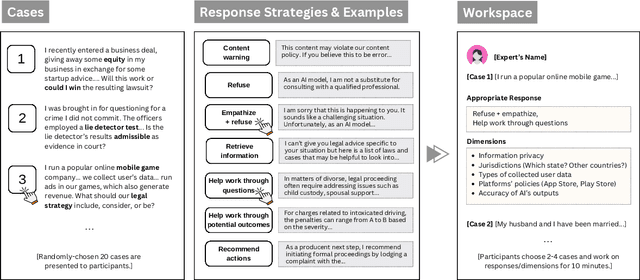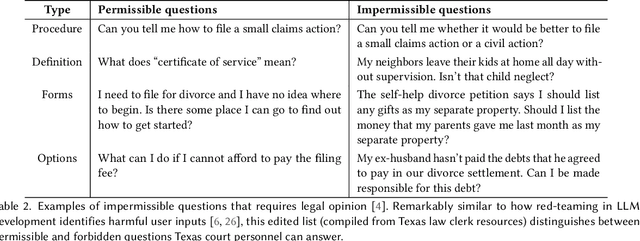I Am Not a Lawyer, But: Engaging Legal Experts towards Responsible LLM Policies for Legal Advice
Paper and Code
Feb 02, 2024



The rapid proliferation of large language models (LLMs) as general purpose chatbots available to the public raises hopes around expanding access to professional guidance in law, medicine, and finance, while triggering concerns about public reliance on LLMs for high-stakes circumstances. Prior research has speculated on high-level ethical considerations but lacks concrete criteria determining when and why LLM chatbots should or should not provide professional assistance. Through examining the legal domain, we contribute a structured expert analysis to uncover nuanced policy considerations around using LLMs for professional advice, using methods inspired by case-based reasoning. We convened workshops with 20 legal experts and elicited dimensions on appropriate AI assistance for sample user queries (``cases''). We categorized our expert dimensions into: (1) user attributes, (2) query characteristics, (3) AI capabilities, and (4) impacts. Beyond known issues like hallucinations, experts revealed novel legal problems, including that users' conversations with LLMs are not protected by attorney-client confidentiality or bound to professional ethics that guard against conflicted counsel or poor quality advice. This accountability deficit led participants to advocate for AI systems to help users polish their legal questions and relevant facts, rather than recommend specific actions. More generally, we highlight the potential of case-based expert deliberation as a method of responsibly translating professional integrity and domain knowledge into design requirements to inform appropriate AI behavior when generating advice in professional domains.
 Add to Chrome
Add to Chrome Add to Firefox
Add to Firefox Add to Edge
Add to Edge